All hail the small scale: Wallpaper* takes a trip inside Citroën’s diminutive new Ami
The Citroën Ami is small but perfectly formed, albeit a little rough around the edges. For short city hops, it’s hard to beat
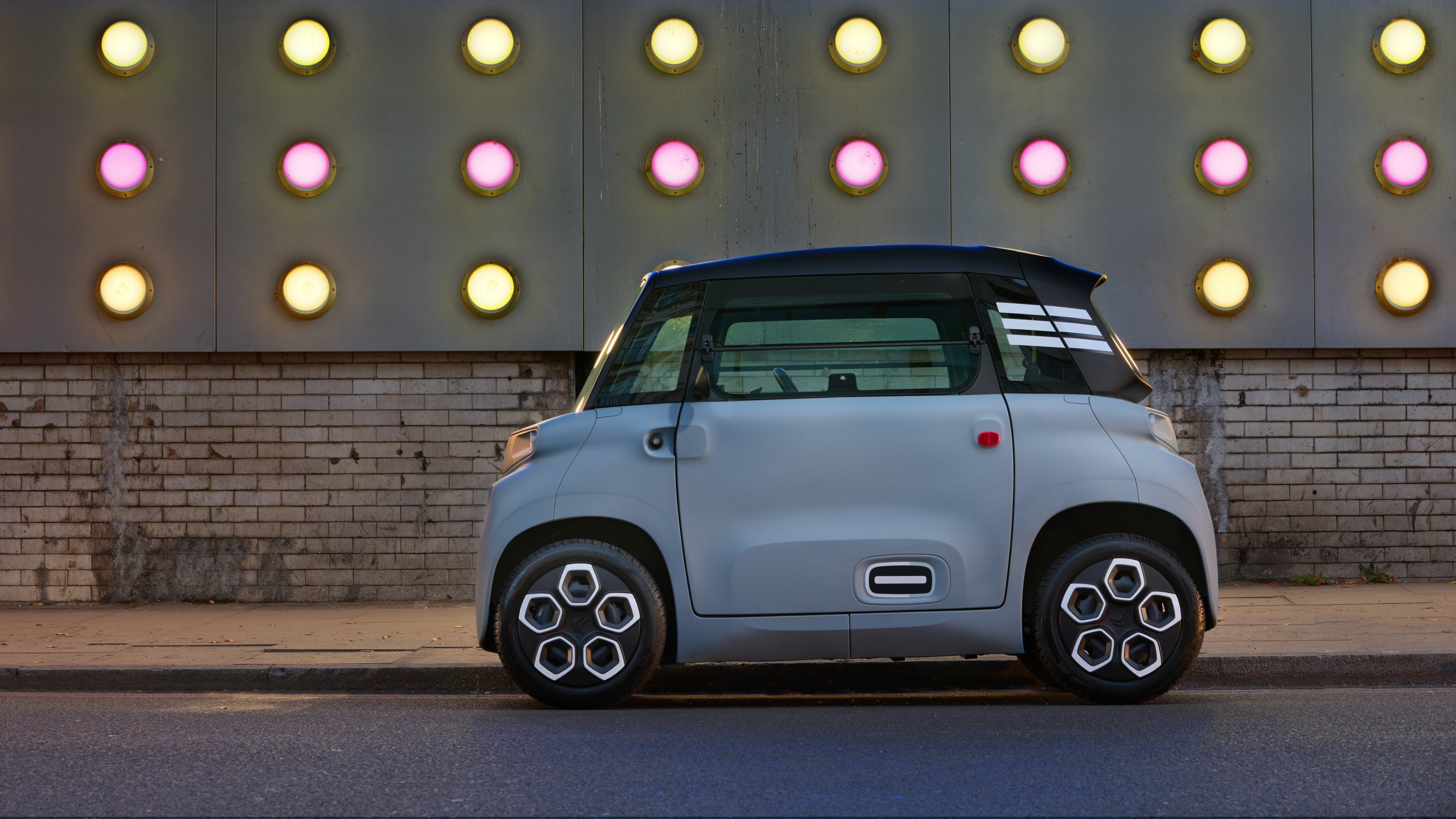
Receive our daily digest of inspiration, escapism and design stories from around the world direct to your inbox.
You are now subscribed
Your newsletter sign-up was successful
Want to add more newsletters?

Daily (Mon-Sun)
Daily Digest
Sign up for global news and reviews, a Wallpaper* take on architecture, design, art & culture, fashion & beauty, travel, tech, watches & jewellery and more.

Monthly, coming soon
The Rundown
A design-minded take on the world of style from Wallpaper* fashion features editor Jack Moss, from global runway shows to insider news and emerging trends.

Monthly, coming soon
The Design File
A closer look at the people and places shaping design, from inspiring interiors to exceptional products, in an expert edit by Wallpaper* global design director Hugo Macdonald.
Thus far, the EV revolution has had the biggest impact at the large end of the scale. Big saloons, crossovers and SUVs have been the focus of most car makers’ push for electrification, with space for all the luxurious accoutrements, functions and accessories that befit the upscale price point.
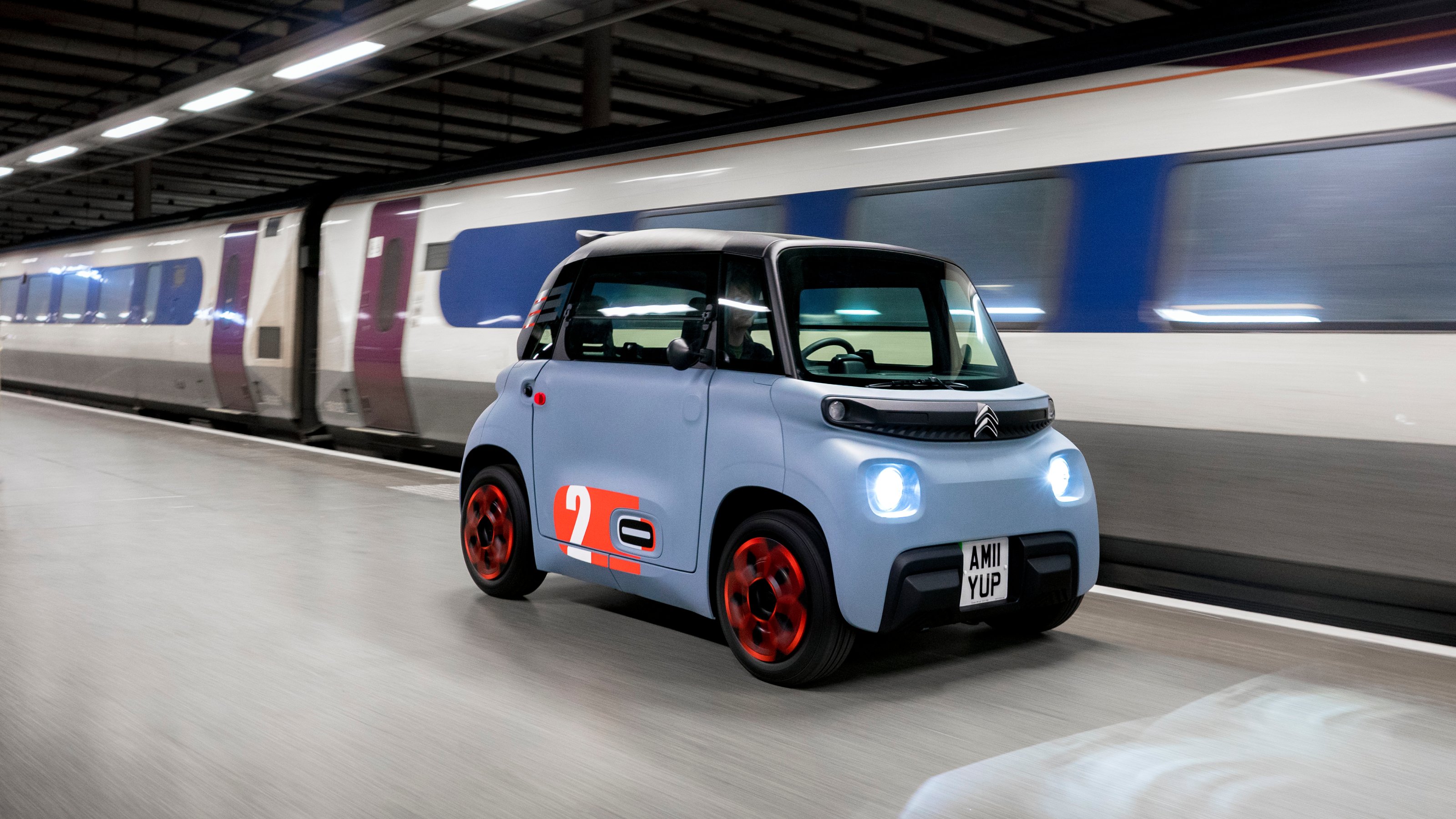
But what if electric cars were stripped back and simple? Citroën is one of the few mainstream manufacturers to explore this avenue. The company has plenty of experience of such ‘people’s cars’, and reckons there’s a ready market for a low-cost, no-frills electric runaround. Something that can do for the modern, eco-conscious consumer what cars like the iconic 2CV did for the auto-hungry masses in post-war France.
The dainty Citroën Ami: mobility goes miniature
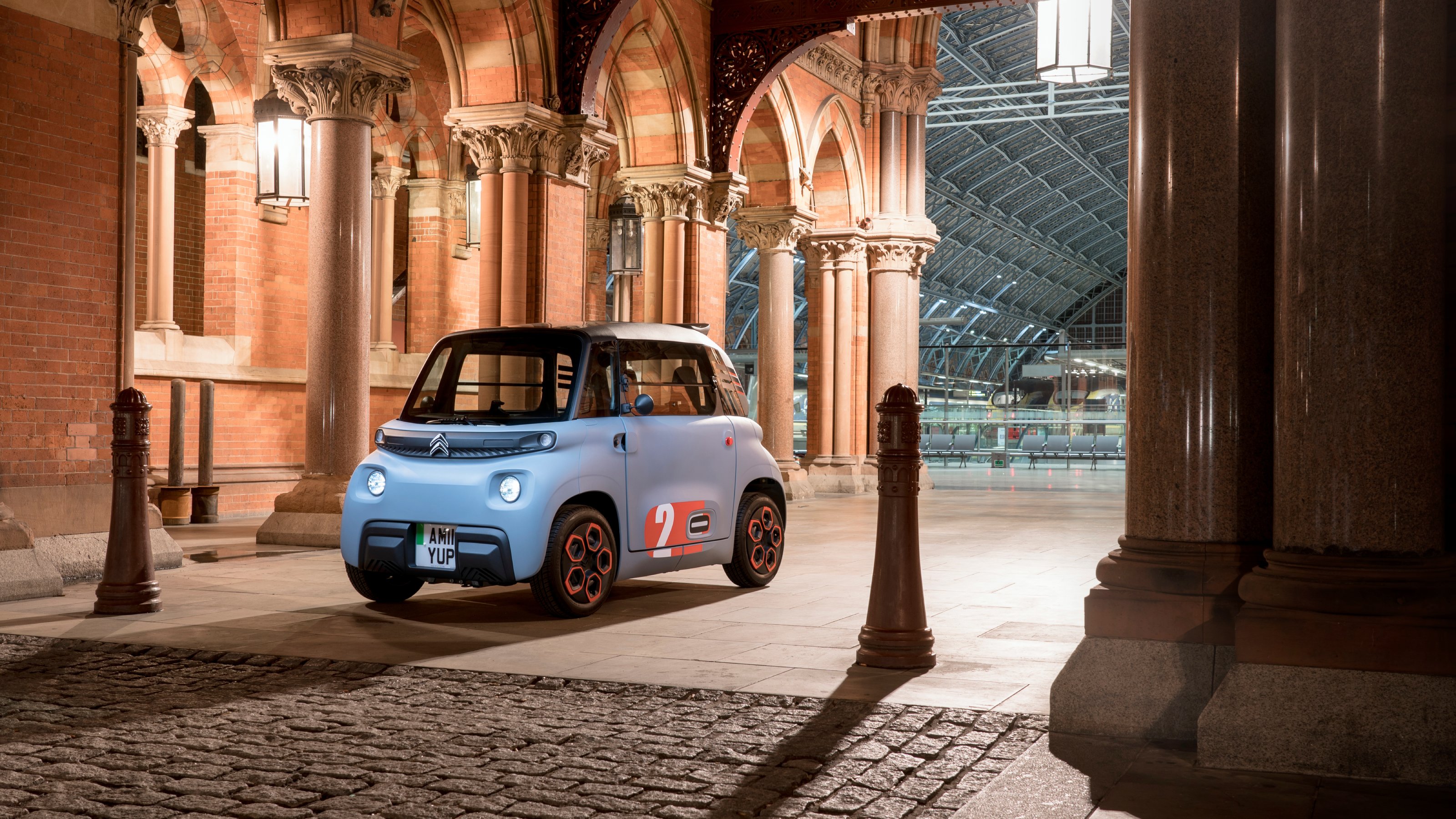
This is Citroën’s dainty Ami, a two-seater urban quadricycle of the most rudimentary nature (guises also include a limited-edition beach buggy, My Ami Buggy). That’s not to say it isn’t an extremely sophisticated and clever design, but it’s also very far from being a conventional car, with all the downsides that brings.
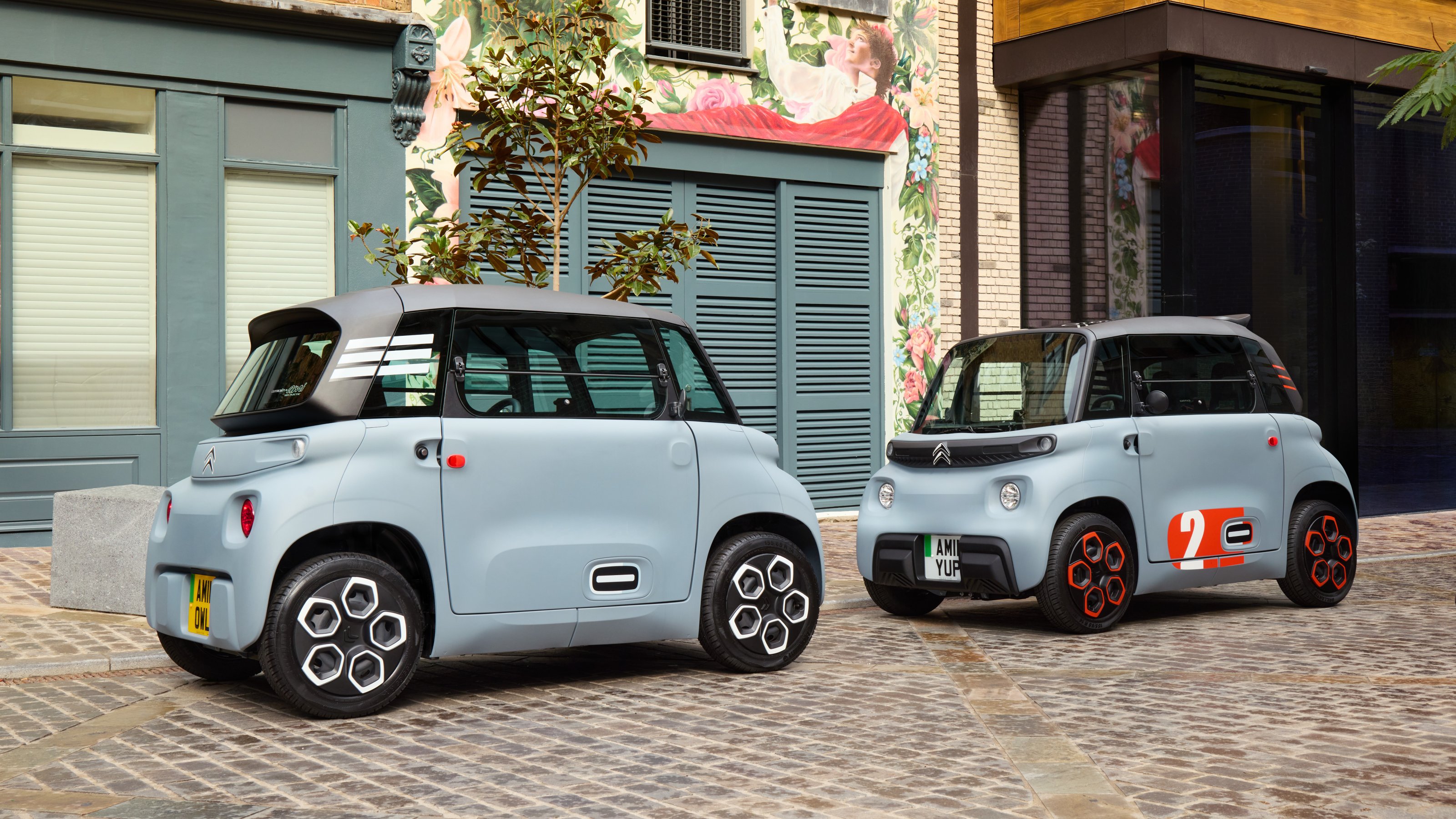
Citroën is of course perfectly adept at building conventional electric cars, but the Ami shows a company willing to take a punt on exploring what sacrifices people might be willing to make in order to stand out.
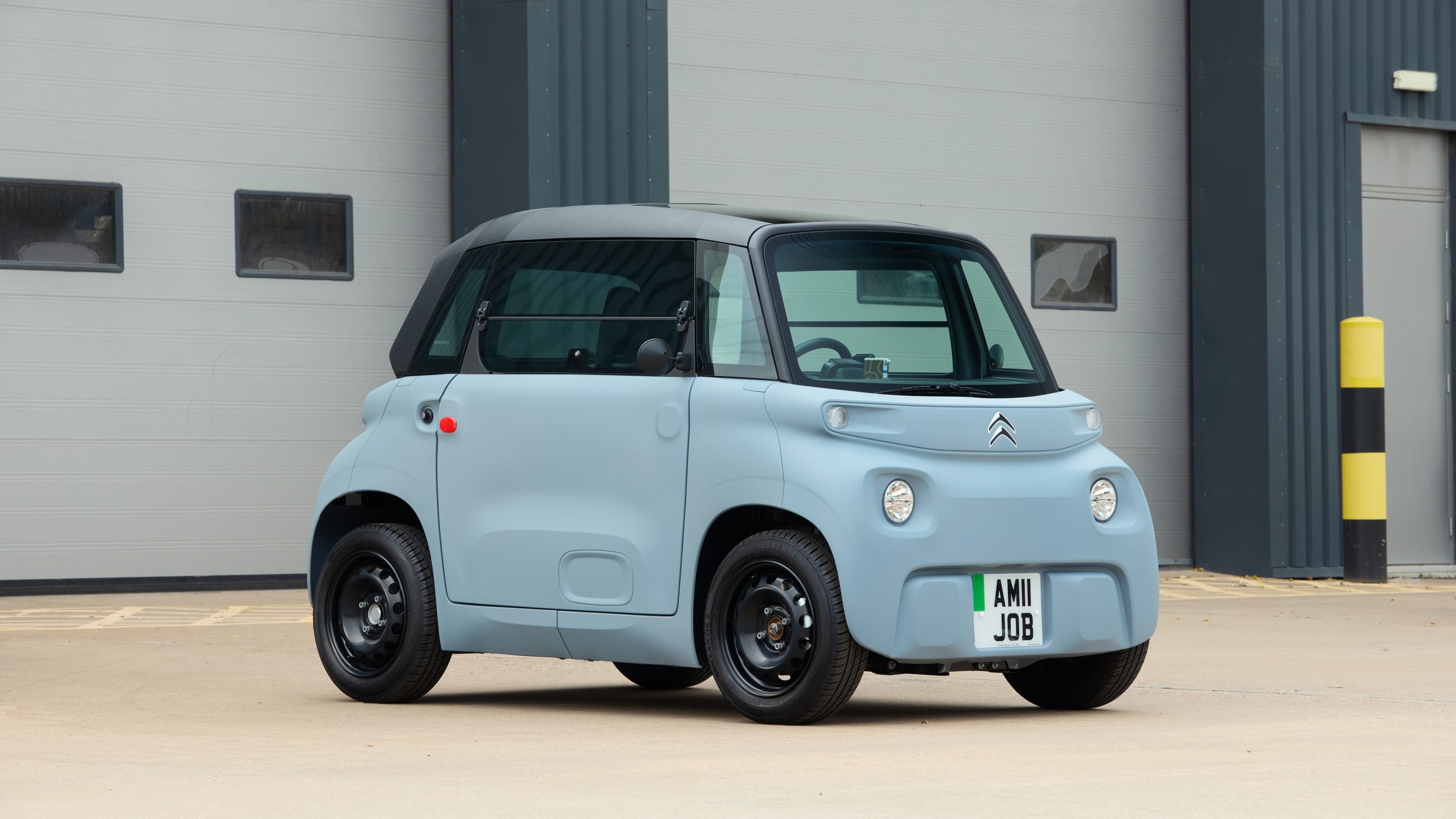
Citroën Ami Cargo, a single-seat utility variant
The all-in weight of this little vehicle is around 485kg, or slightly less than the mass of the 75kW battery pack in a Tesla Model S. It’s therefore unsurprising to find that the Ami is also light on battery capacity, with just 5.5kW available, giving a theoretical maximum range of 47 miles.
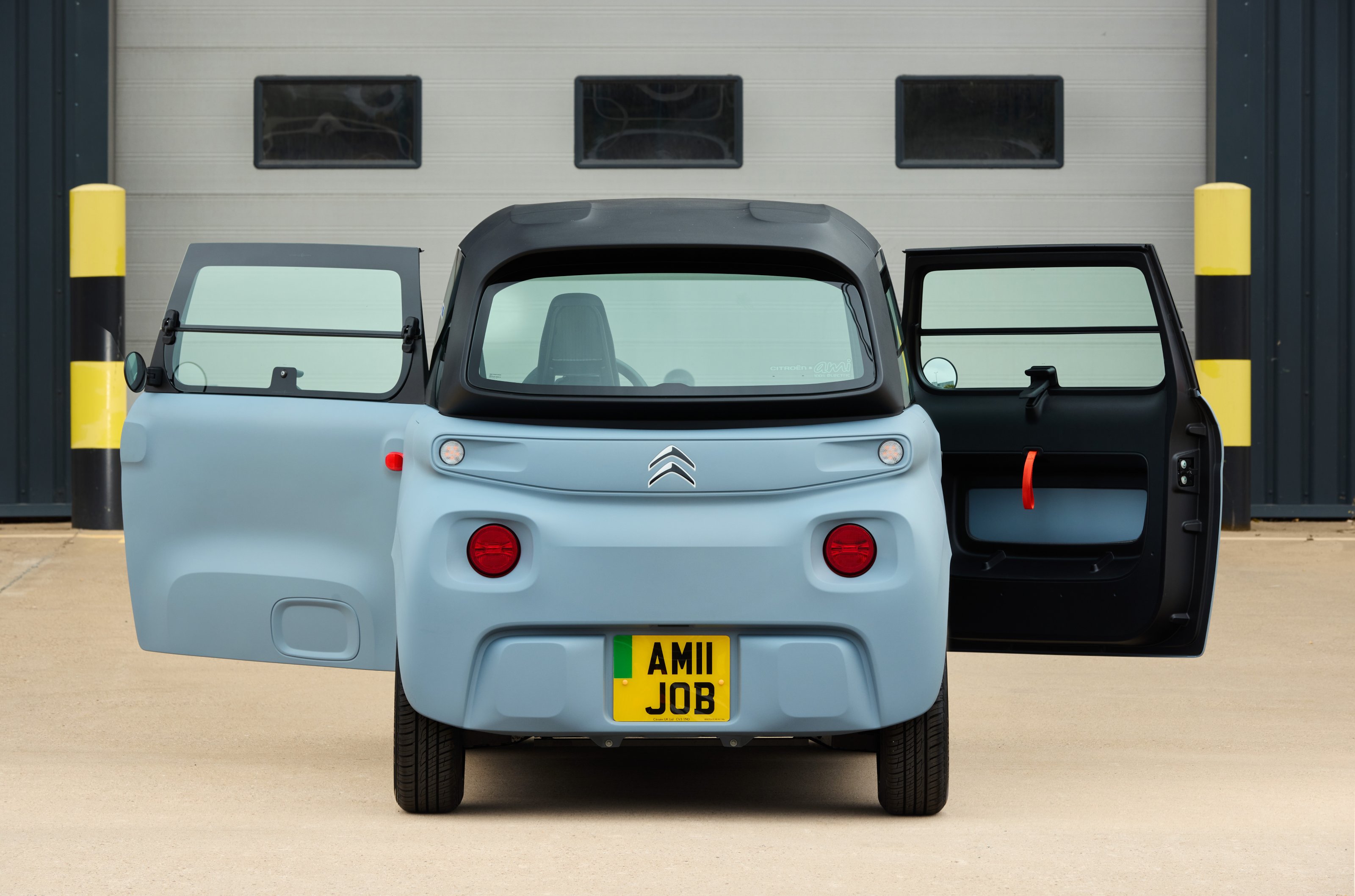
Citroën Ami Cargo shares the passenger variant's single door design
Unlike other EVs, there’s no mighty shove when you stand on the accelerator, just a spirited lurch for the first few metres and then steady progress up to the Ami’s 28mph top speed. Apparently, it’ll go faster, but legislative requirements in its native France ensure the speed stays low to open the Ami up to 14-year-old drivers (16 in the UK).
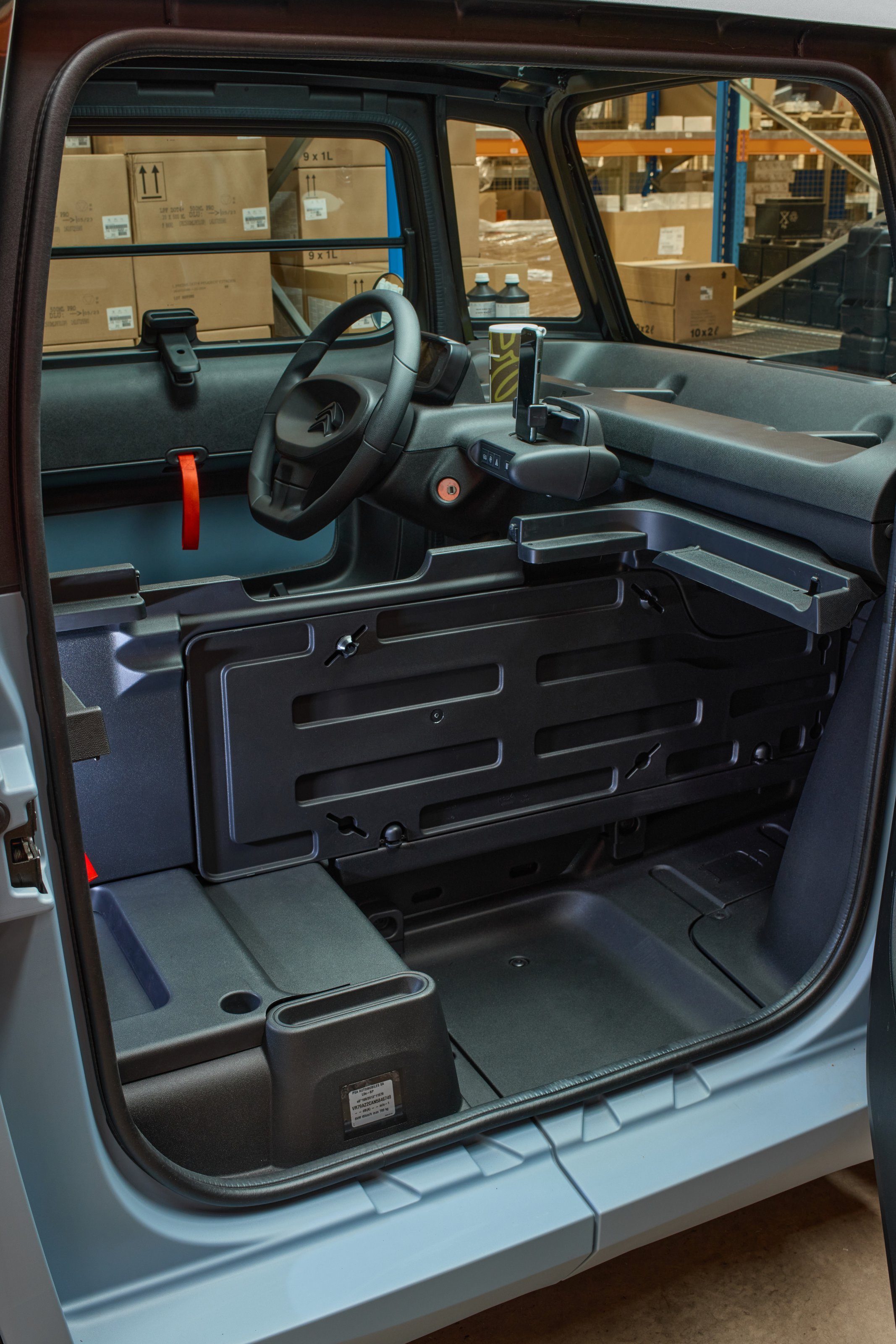
The Cargo variant does away with the passenger seat
Be thankful for the restrictions. At v-max, you can practically hear the electrons grinding themselves into kinetic energy as the little battery does its best not to expire. Steering is nothing to write home about either, with a lack of feedback and reaction time, probably to encourage you to both concentrate hard on where you’re going and discourage any sudden, de-stabilising moves. In the dark, in the rain, the Ami feels visceral, alive and even slightly illicit, towered over by regular cars, dwarfed by buses.
Receive our daily digest of inspiration, escapism and design stories from around the world direct to your inbox.
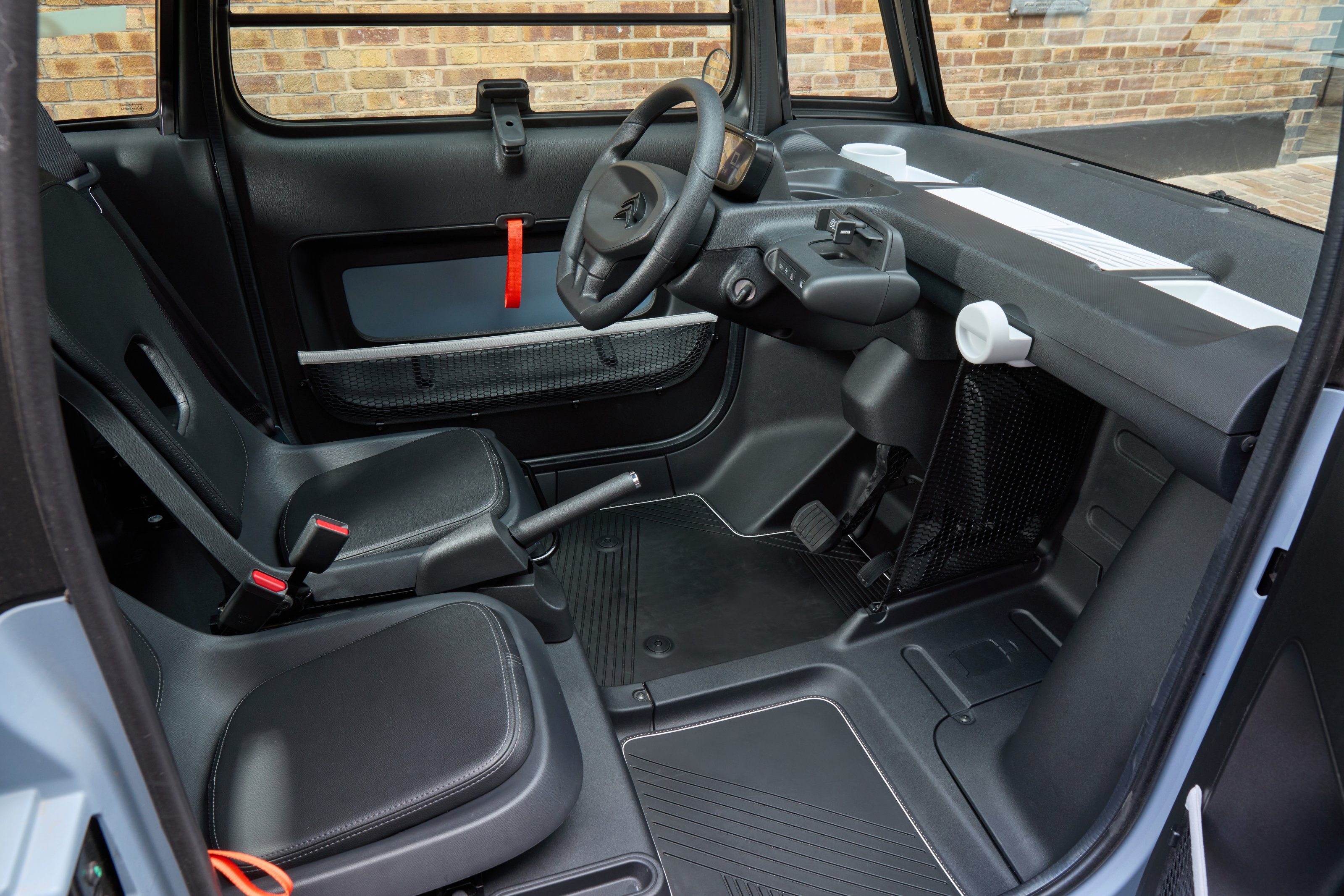
The regular Citroën Ami seats two with space for bags
All this makes it sound like the Ami is more of a trial than a treasure, but there’s actually a lot to recommend. If your use case intersects with the Ami’s modest, specialist skill set, there’s nothing else like it to be had. The design is a case in point. Cleverly, the car uses only a single casting for the front and rear bodywork, while the doors are also symmetrical – they simply open in opposite ways. Other details are similarly minimal.
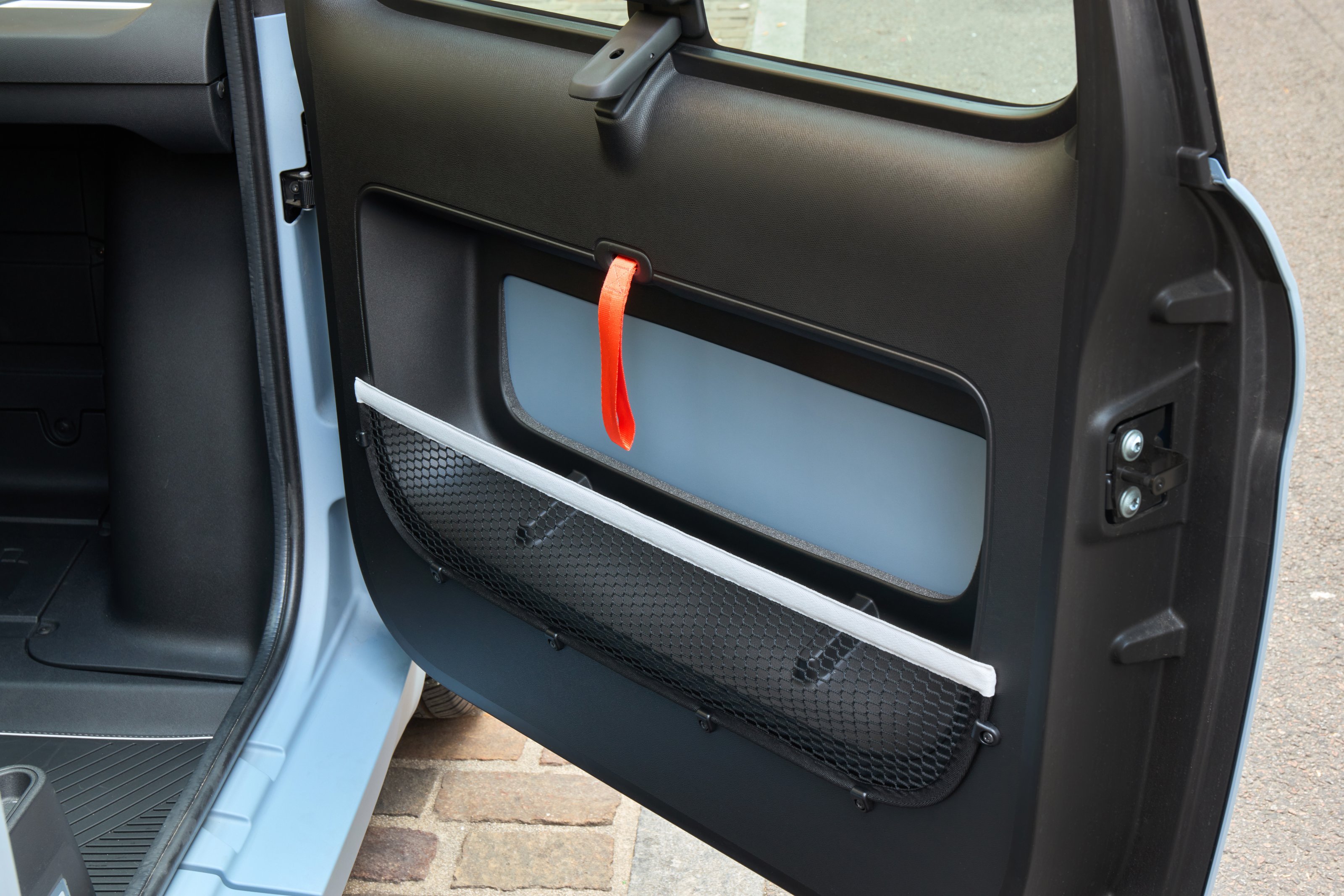
Citroën Ami has a stripped back, ultra-functional interior
There’s no boot, just a small slot for stuff behind the thin seats and a deep passenger footwell, together with a handy hook for hanging bags. Instrumentation is rudimentary – just an LCD screen for speed, charge and range – as well as a dock for your phone and a slot for a cylindrical Ultimate Ears Bluetooth speaker. Door handles are red loops of canvas, soundproofing is non-existent, and the trim is hard, unyielding unpainted ABS plastic, just like the exterior.
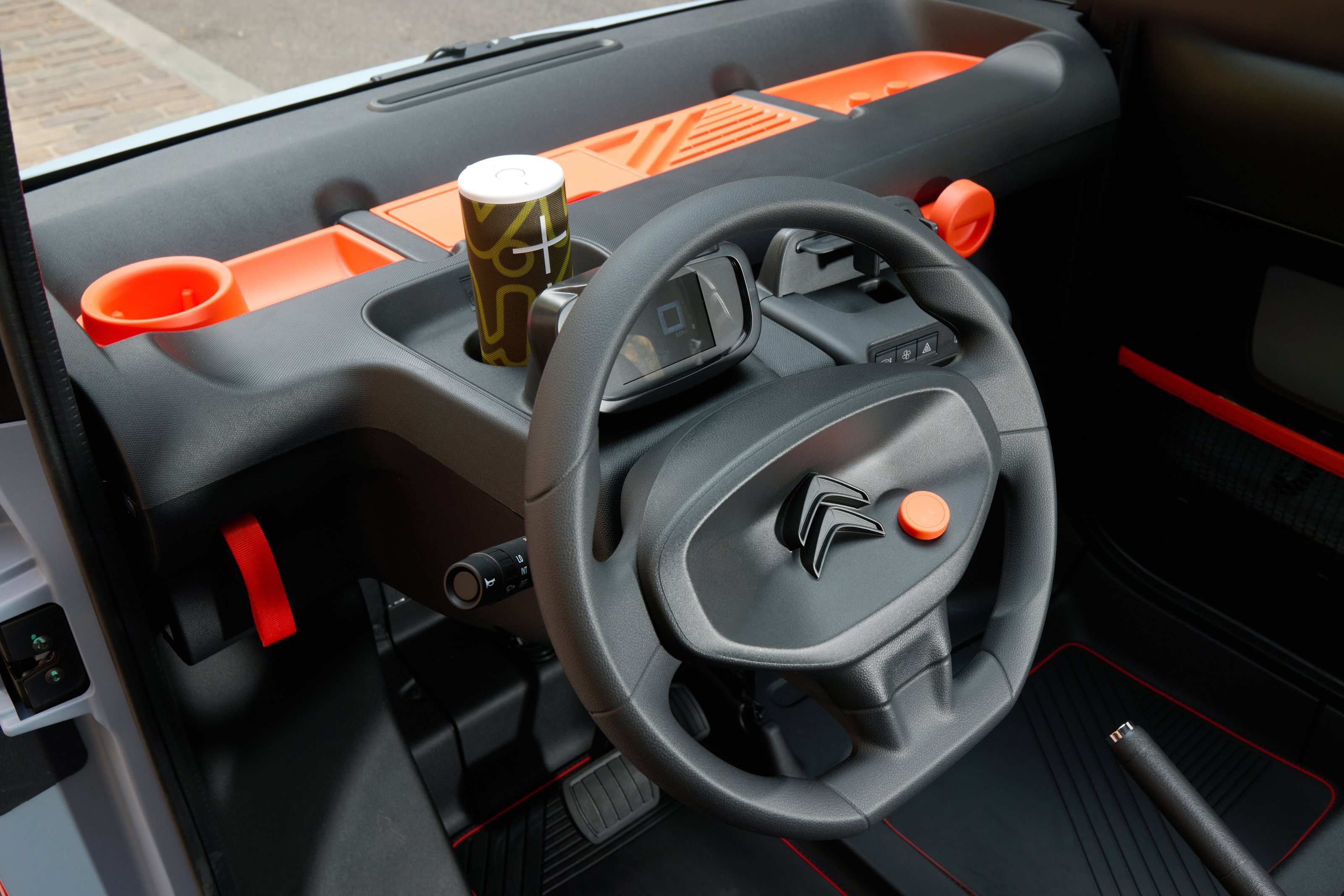
The Citroën Ami dashboard
Is the Ami the future of urban transportation? Probably not, but it’s a welcome addition to the mobility mix. It paves the way for Citroën to hold sway over the oft-overlooked segment of truly affordable electric mobility. Up next will be a car inspired by the company’s OLI concept, which takes the Ami’s minimalist approach but scales it up to a full-sized, regulations-compliant four-seater.
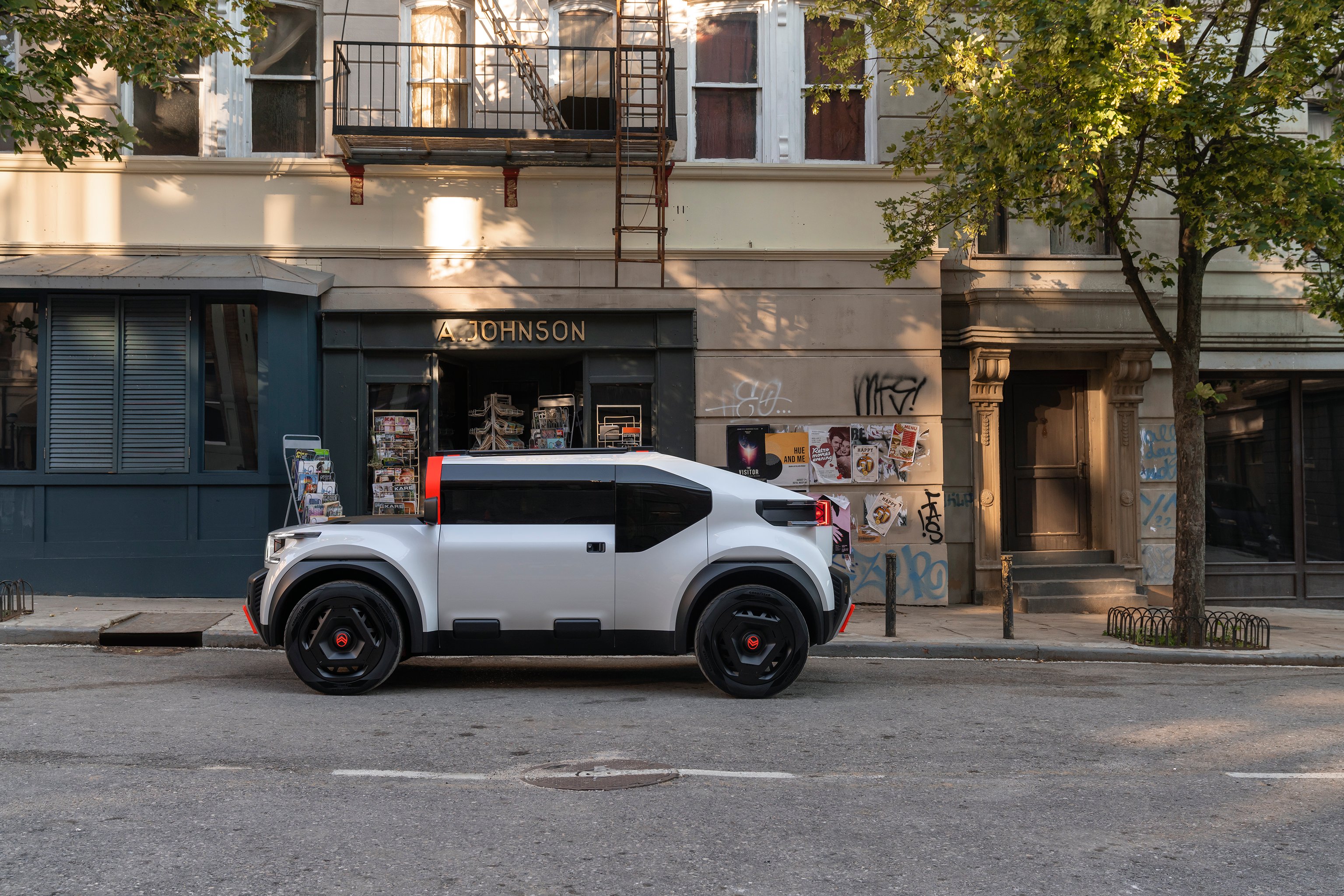
Citroën OLI Concept
Radical in form and use of materials, it remains to be seen how much of this innovation will translate into production. For now, the Ami is the most curious car you can buy.
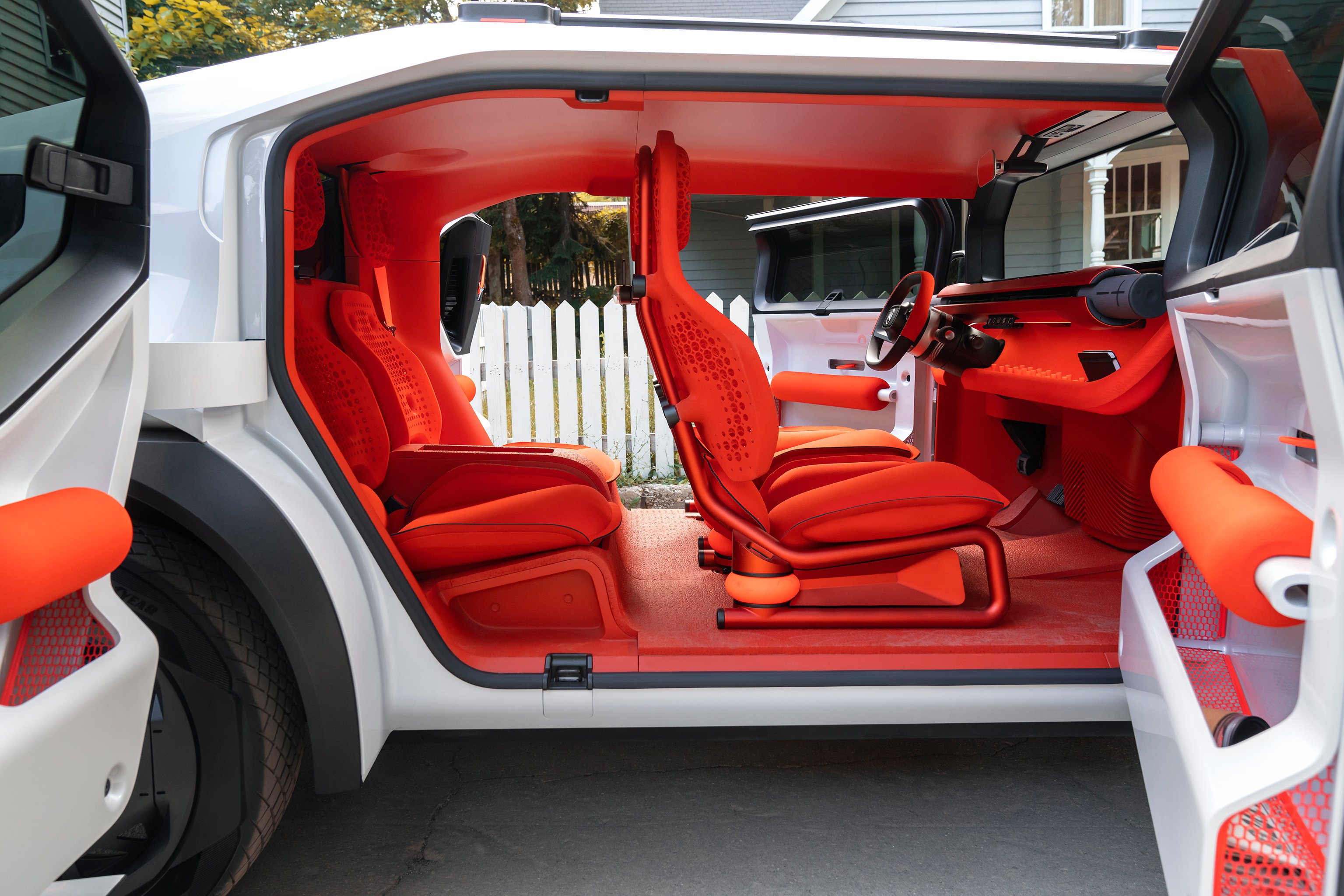
Up next? The Citroën OLI Concept's interior
Citroën AMI, from £8,695, Citroen.co.uk/ami
Jonathan Bell has written for Wallpaper* magazine since 1999, covering everything from architecture and transport design to books, tech and graphic design. He is now the magazine’s Transport and Technology Editor. Jonathan has written and edited 15 books, including Concept Car Design, 21st Century House, and The New Modern House. He is also the host of Wallpaper’s first podcast.